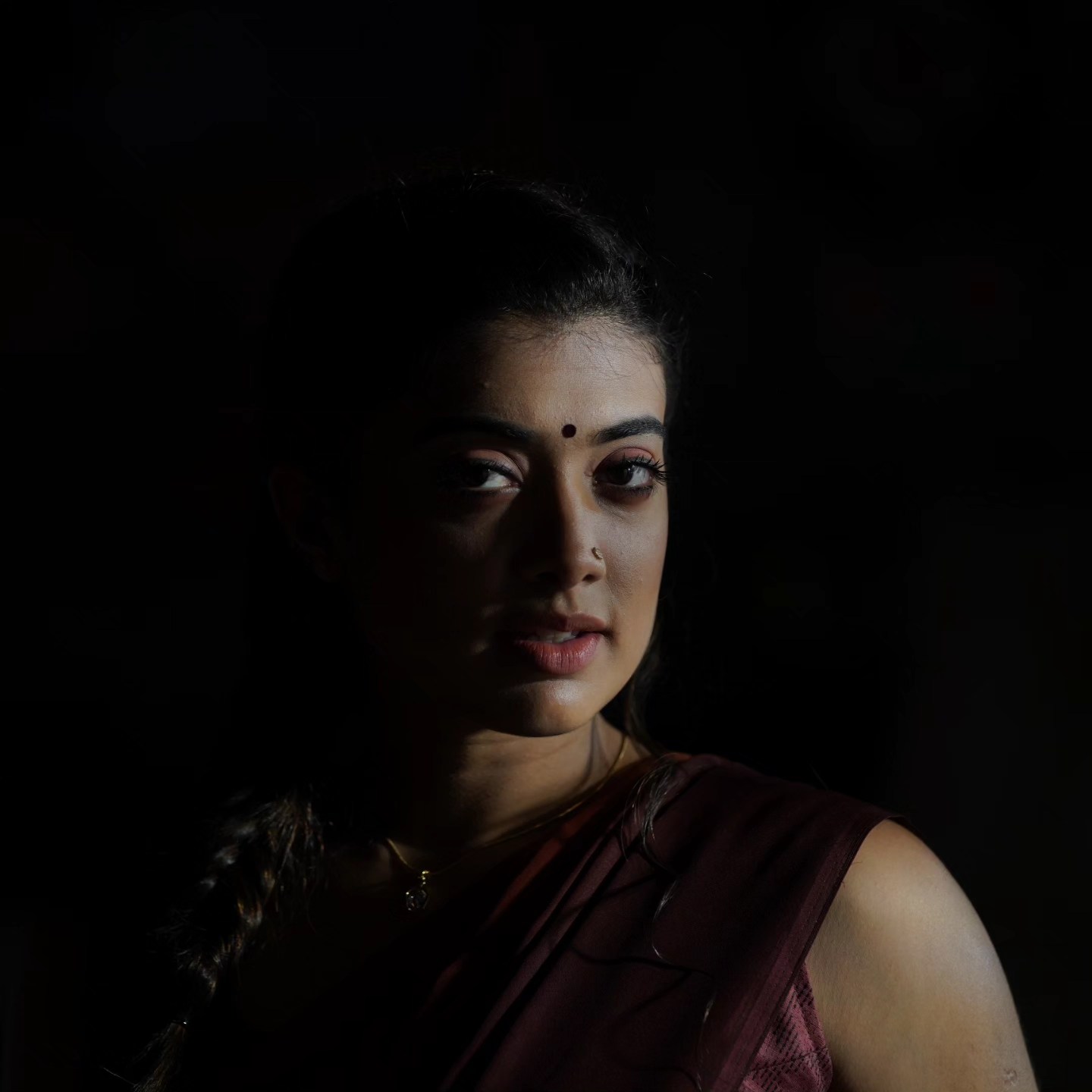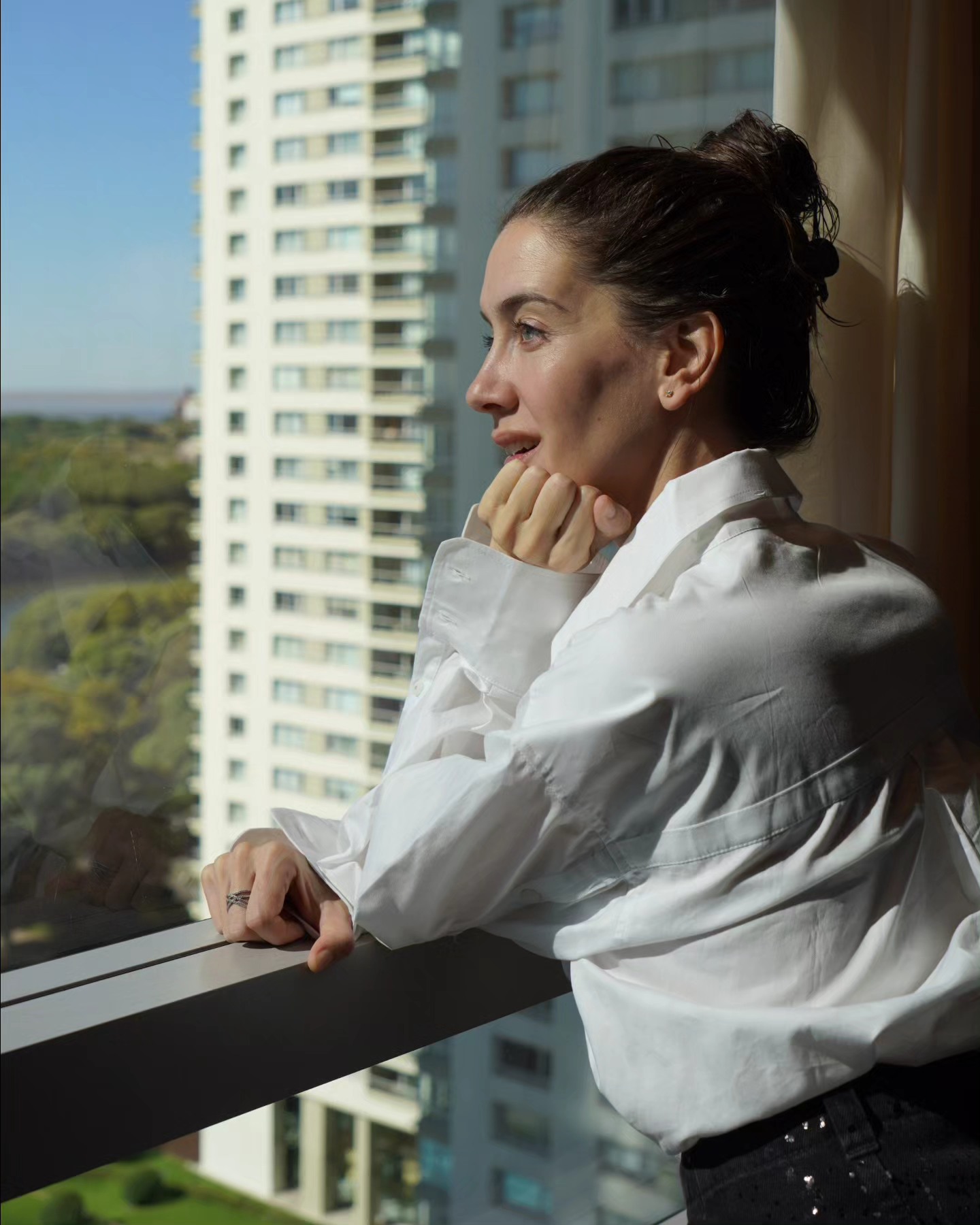Indian-Pakistani Wife Swap Story: A Sensual Journey of Trust and Desire in the UK
An intimate real-life-inspired tale of an Indian couple exploring passion and boundaries with a Pakistani couple in the UK. Cultures collide, desires unfold — in a bold story of wife sharing, trust, and erotic awakening.
Some desires don’t erupt. They rise—slowly—like fog on a winter field. You don't even realize they’ve settled in your bones until you're breathing them in with every exhale.
Lakshmi and I had been married four years, yet even in a new land like the UK—far from our crowded cities and familiar languages—we had made love feel like home. She was the kind of woman who didn’t just undress with her body, but with her eyes, her mischief, her tea-soaked silences. Our life together in a quiet corner of Reading was warm, stormy, tender. Every moment, whether stolen in the kitchen while she chopped okra or under the soft drizzle on our tiny balcony, felt like a scene I never wanted to forget.
Her dusky skin always looked more golden under British sun. Her hips, wrapped in soft cotton kurtas, moved with a rhythm that stirred something old and sacred in me. And at night, when she slipped into those clingy satin nighties—her nipples brushing gently against the cold fabric—I often thought, this woman doesn’t just belong to me. She belongs to every poem that’s never been written.
When she left for a week-long corporate training in Manchester, I told myself I’d be fine. I wasn't.
I missed her scent—jasmine with a trace of coconut oil. I missed how she whispered my name just before sleep. In her absence, I fell into long hours online—scrolling, reading, and, eventually, chatting. It started innocently—just conversations. Until I met Rafiq.
He was from Lahore, living with his wife in Birmingham. There was a calm masculinity in the way he typed—measured, respectful, yet laced with an undercurrent of mischief. We found strange comfort in our differences—me, Hindu from Chennai, he, Muslim from the old streets of Anarkali Bazaar. And yet, we were the same: husbands, lovers, men still deeply drunk on the fragrance of their wives.
He told me about Zara.
“She wears her hijab like it’s woven from moonlight,” he once said. I laughed gently, but the words stayed with me.
One evening, he sent a picture of her.
Zara.
Her eyes were everything. Lined in soft kohl, they carried mystery and tenderness in equal measure. Her face was delicate, framed in an emerald green hijab that wrapped her head and neck but somehow emphasized the fullness of her lips and the softness of her cheekbones. She had that serene beauty—like the quiet power of a Sufi song playing just before dawn. Modest, yes—but in a way that teased your imagination instead of shutting it down.
Rafiq asked about Lakshmi, and I hesitated. But something in me—a dark, curious flicker—wanted to know what another man saw when he looked at her. So I shared a photo. Just her, in a sleeveless kurti, sipping chai on our balcony.
“Bro,” he messaged. “She’s fire wrapped in devotion.”
We laughed. But beneath that laughter, something had begun. A seed.
---
When Lakshmi returned, she was tired but radiant. I didn’t tell her everything, but I told her enough. About Rafiq, about Zara. About how he saw her—my Lakshmi—not just as my wife but as a woman worthy of a thousand silent prayers.
She laughed it off at first. “So what next? Wife swapping?” she teased, brushing past me to hang her coat.
But later that night, her fingers wrapped around my wrist, and she whispered, “What did he say about me? Exactly.”
That was how it began. Slowly. She let me read his messages aloud. Sometimes she smirked. Other times, her breathing changed. During intimacy, I would whisper things: how Rafiq might have undressed her with his eyes. How Zara would blush if she heard the sounds Lakshmi made under me.
It wasn’t cheating. It was... a widening of desire. A new theatre for our old play.
---
Months passed. We decided to meet.
It wasn’t planned as anything more than a shared weekend. They came down from Birmingham. Rafiq and Zara arrived one rainy Friday evening, holding hands. Zara’s hijab was a soft mauve that matched the sky, and her eyes caught mine just long enough to unsettle me.
Lakshmi was electric that weekend. She wore a thin peach saree that clung to her hips with every step, her pallu threatening to fall off one shoulder. She joked more than usual, made Rafiq laugh in ways that made me wonder what that laugh sounded like in their bedroom. I watched Zara, who remained gentle, composed, and watched everything with quiet intensity.
We drank chai. We walked along the Thames. Lakshmi insisted on showing them the ruins of Reading Abbey. “So much history here,” she said, her arm brushing Rafiq’s by accident. Or maybe not.
That night, after dinner, Zara retired early. Said she had a headache. Rafiq was about to follow, but I caught his gaze. A silent message passed between us.
Lakshmi wore her satin nightie again—navy blue this time, with tiny golden paisleys. No bra. No inner. Just silk and skin.
We sat. The air was thick. I kissed her—softly, slowly, letting Rafiq watch. He didn’t blink.
“Touch her,” I said finally.
He froze. Lakshmi looked at me with wide eyes—but I saw something else there too. Curiosity. Hunger.
Rafiq moved beside her. His hand hovered at her waist. Then, lightly, rested on her hips. Lakshmi gasped. Not in fear. But in recognition. Like a part of her had been waiting to feel what it was like to be worshipped by someone else, with her husband still watching.
I kissed her shoulder, whispering in Tamil, “It’s just a dance. A new rhythm.”
She leaned into him.
Her body trembled. His hands moved—tentative at first, then surer. My wife, the woman I’d kissed a thousand times, now gasping beneath someone else’s lips.
And she looked more alive than I’d ever seen her.
---
In that moment, borders dissolved. India. Pakistan. Hindu. Muslim. It all meant nothing. What mattered was touch. Trust. The silent thrum of four souls daring to taste something beyond taboo.
Later that night, I slipped into the guest room.
Zara was awake.
She sat on the bed, blanket wrapped around her legs, hijab off, her hair braided neatly. She looked at me, eyes wide, soft. I didn’t speak. I just sat beside her.
She didn’t move away.
Her fingers brushed mine.
And in the stillness of that room, I realized something: Some desires aren’t about ownership. They’re about surrender.
The room was quiet. Not silent — but quiet in the way a place becomes when two people decide to not fill it with unnecessary words.
Zara’s fingers were barely grazing mine, yet they held more intensity than any kiss I’d ever known. There was a softness about her — like a poem whispered in Urdu — that made me slow down. Everything in me wanted to move forward, but something deeper told me to stay still… and just listen.
“You’re not afraid?” I asked her, voice low.
She tilted her head toward me. Her braid fell over her shoulder like a black silk ribbon. “Afraid?” she repeated, as if the word didn’t belong to her language. “Of you?”
“No. Of… this.”
She looked down at her lap. Her fingers toyed with the edge of the blanket.
“Fear and desire live in the same room, Aarav,” she said gently. “Sometimes, you just have to decide which one gets to keep the light on.”
My breath caught. She wasn't just beautiful — she was wise in the kind of way only someone who had kept too many secrets could be.
I reached out and slowly touched the edge of her braid. She didn’t flinch.
“You look… ethereal,” I murmured. “Without the hijab, your hair is like… midnight falling apart.”
She gave me the faintest smile. “You like women with their hair open?”
“I like women who aren’t afraid to be fully themselves. Hair open or not.”
Her smile deepened — and then faded. She looked toward the slightly open window, where the streetlamp outside cast silver patterns on the wall.
“There’s something in you and Lakshmi,” she said after a pause. “Something magnetic. It draws people in. Even Rafiq.”
I was quiet. I didn’t want to ruin the moment by agreeing too quickly.
“Rafiq adores you,” I said instead.
“I know,” she whispered. “But sometimes adoration doesn’t see everything. You… see things.”
I wasn’t sure if she meant me, or this moment. But she leaned in then — just slightly — and that was all the permission I needed.
I kissed her.
It was not wild. Not rushed. It was a kiss that asked a question: Can we be safe, even in this fire?
Her lips were warm, hesitant, soft with the sweetness of uncertainty. My hand slid along her waist under the blanket, feeling the curve of her hip. She exhaled — and in that breath was surrender. Not to me, but to herself. To the idea that this night didn’t need definition. Just feeling.
---
Meanwhile, across the hallway…
Lakshmi was in our bedroom with Rafiq.
Later, she would tell me she had never felt more aware of her body than in that moment — being seen, touched, desired by someone foreign but familiar. His beard grazed her skin differently. His breath carried a different rhythm. But his gentleness reminded her of mine. And perhaps, that’s what gave her the permission to let go — to moan softly when his hands cupped her from behind, when his lips found the space between her neck and shoulder.
She told me how Rafiq whispered her name with reverence. “Lakshmi,” as if it were a sacred mantra.
She told me how she let her eyes stay open while he entered her, just so she could still see the familiar walls of our bedroom — our safe space.
She didn’t cry. She didn’t compare. She just… allowed.
---
By the time Zara and I had found our way into each other’s warmth — slow, explorative, electric — the night had deepened.
When I held her afterward, she rested her head on my chest and murmured, “Your heartbeat is calmer than his.”
“And that’s good?” I asked, brushing her hair.
She smiled sleepily. “It’s… grounding. Like being inside a temple. With all the lamps lit.”
---
The next morning, we didn’t talk about what happened. Not in the way people expect.
Zara cooked parathas with Lakshmi. They laughed about spices and shared old stories of childhood summers. Rafiq and I sat on the balcony, sipping strong filter coffee, watching pigeons gather near the satellite dish.
Nothing was broken. In fact, something was healed.
A piece of India, a piece of Pakistan — touched, tasted, tangled — in a quiet Reading flat.
And in that fragile, beautiful mess of desire, we realized something rare:
That love doesn’t need borders.
That skin remembers kindness more than it remembers origin.
That women, wrapped in silk or hijab, are goddesses in their own light — fierce, curious, powerful.
And that sometimes, the most intimate act isn’t sex — it’s the moment you let someone else see your partner… not as yours, but as herself.



Comments
No comments yet. Be the first to comment!